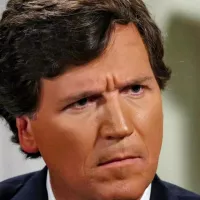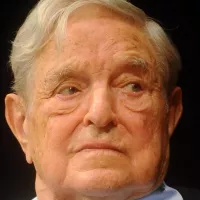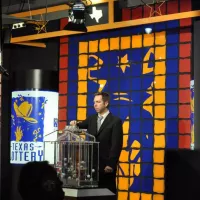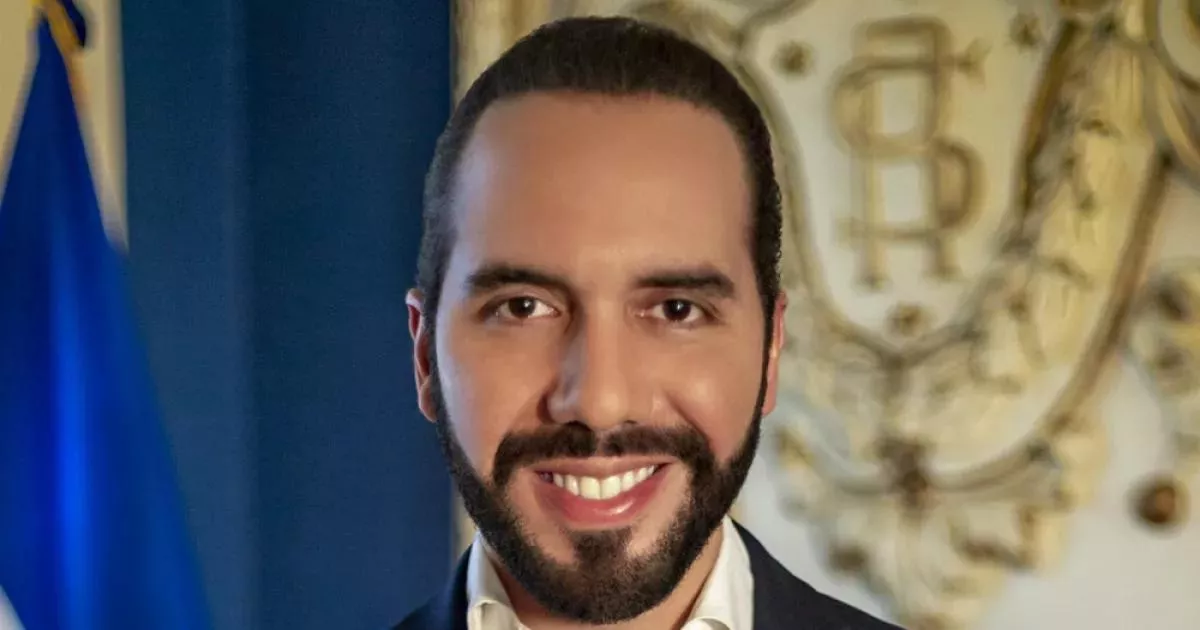Life is full of challenges, and Nayib Bukele faced many. Discover key struggles and how they were overcome.
Nayib Bukele is the current president of El Salvador, serving since June 1, 2019. Prior to his presidency, Bukele was a businessman and politician. He is known for his unconventional governing style and use of social media. Some of his key policies include a crackdown on gang violence and the adoption of Bitcoin as legal tender. Bukele's administration has faced both praise for reducing crime rates and criticism for its authoritarian tendencies and potential human rights violations.
2014: Deteriorating Relationship with FMLN
After Salvador Sánchez Cerén was elected as the FMLN president of El Salvador in 2014, Nayib Bukele's relationship with the FMLN began to deteriorate.
June 2015: Mirror Sites of Newspapers Created
In June 2015, the Búnker digital-programming company created mirror sites of the newspapers El Diario de Hoy and La Prensa Gráfica, posting false information in an attempt to damage their reputations.
2015: Democratic Change Party's Performance
In 2015 legislative elections, the Democratic Change party failed to receive over 50,000 votes, which eventually led to its cancellation by the TSE in 2018.
2015: Peak Homicide Rate
In 2015, El Salvador's homicide rate peaked at 107 homicides per 100,000 people.
2015: Threatened to Leave FMLN Over Attorney General Appoinment
In 2015, Nayib Bukele threatened to leave the FMLN if the government reappointed Luis Martínez as attorney general. The FMLN relented and replaced Martínez.
January 2016: El Diario de Hoy and La Prensa Gráfica Reported Cyberattack
In January 2016, El Diario de Hoy and La Prensa Gráfica reported that the Búnker digital-programming company had created mirror sites of the newspapers and posted false information. Bukele denied involvement.
July 2017: Bukele Sued La Prensa Gráfica for Defamation
On 4 July 2017, Nayib Bukele sued La Prensa Gráfica for $6 million, alleging defamation in its reporting of cyberattacks linking him to the Troll Center case. Later that month, a court dismissed Bukele's lawsuit and three other courts rejected his appeals.
September 2017: Accusation of Assault and Insults
In September 2017, FMLN member Xóchitl Marchelli accused Bukele of throwing an apple at her and calling her a "damn traitor" and a "witch".
October 2017: Expulsion from FMLN
In October 2017, Nayib Bukele was expelled from the FMLN after an ethics tribunal found him guilty of "defamatory acts", "disrespect" for women's rights, and "disqualifying comments" against party members.
December 2017: Charges Dropped in Troll Center Case
In December 2017, the charges against five people in relation to the "Troll Center" case, which involved the creation of mirror sites of newspapers, were dropped.
2017: Ousted from the FMLN and Founded Nuevas Ideas Party
In 2017, Nayib Bukele was ousted from the Farabundo Martí National Liberation Front (FMLN). Shortly afterward, he founded the Nuevas Ideas political party.
October 2018: Withdrawal of Lawsuit
In October 2018, Xóchitl Marchelli sent a letter to the court, stating she would no longer pursue her lawsuit against Bukele for health reasons.
December 2018: Presidential Debate Absence
In December 2018, Bukele did not attend the presidential debate, claiming that the debate rules were not explained to him.
December 2018: FGR Reviewed Information Linking Bukele to Cyberattacks
In December 2018, the FGR (office of the attorney general) stated that it had reviewed information supposedly linking Nayib Bukele's cell phone to the cyberattacks in the "Troll Center" case.
2018: FMLN's Poor Performance in Elections
In the 2018 legislative and municipal elections, the FMLN experienced its worst performance since 1994, losing seats in the Legislative Assembly and municipalities. Bukele had called on his supporters to spoil their votes or stay home.
January 2019: Presidential Debate Absence
In January 2019, Bukele did not attend the presidential debate, claiming that the debate rules were not explained to him.
February 2019: FMLN Acknowledges Bukele's Expulsion as a Mistake
In February 2019, Roberto Lorenzana, FMLN presidential communications secretary, stated that Bukele's expulsion was a mistake that cost the party votes.
March 2019: Acquittal in Assault Case
On March 29, 2019, Nayib Bukele was acquitted by the Specialized Sentencing Court in the case brought against him after being accused of assault.
November 2019: Bukele seeks loan for Territorial Control Plan
In November 2019, Bukele began trying to secure a $109 million loan from the Central American Bank for Economic Integration to fund phase three of the Territorial Control Plan, but the legislature requested more time to evaluate the loan.
2019: Accusations of Releasing Gang Leaders
Between 2019 and 2021, the United States Department of Justice accused Bukele's government of releasing gang leaders as part of negotiations, a claim Bukele denied.
2019: Homicide Rate Decrease
By 2019, El Salvador's homicide rate had decreased to 38 homicides per 100,000 people, although still one of the world's highest. There were approximately 67,000 gang members in the country.
February 2020: Ordered Soldiers into Legislative Assembly
In February 2020, Nayib Bukele ordered 40 soldiers into the Legislative Assembly building to intimidate lawmakers into approving a US$109 million loan for the Territorial Control Plan.
February 2020: Bukele calls for emergency meeting to approve loan
On 6 February 2020, Bukele invoked Article 167 of the country's constitution and called for an emergency meeting of the Legislative Assembly to approve the $109 million loan. He called for his supporters to rally around the Legislative Assembly during the emergency meeting that was scheduled for 9 February. The loan was not approved.
March 2020: National quarantine imposed
On 11 March 2020, Bukele issued an executive decree imposing a "quarantine throughout the national territory", suspending school activities, prohibiting foreigners from entering the country, and mandating a 30-day quarantine for everyone entering the country. On 18 March 2020, Bukele confirmed the first case of COVID-19 in El Salvador.
March 2020: Nationwide lockdown imposed
On 21 March 2020, Bukele imposed a 30-day nationwide lockdown to combat the pandemic. 4,236 people were arrested for violating the lockdown order.
April 2020: Criticism of prison conditions
Amid April 2020 lockdowns in the country's prisons and published images of prisoners lined up in cramped positions, Human Rights Watch called the prisons' living conditions "inhumane" (particularly in light of the pandemic).
July 2020: ICG Report on Homicide Decrease
In July 2020, the International Crisis Group (ICG) suggested that the decrease in homicides during Bukele's first year in office could be due to informal agreements between the government and gangs, allegations the government denied.
September 2020: El Faro Accusations of Negotiations with MS-13
In September 2020, El Faro accused Bukele's government of conducting secret negotiations with MS-13, allegedly granting them more freedom in prison in exchange for a reduction in homicides and support for Nuevas Ideas during the 2021 legislative elections.
November 2020: Investigation of governmental institutions for corruption
In November 2020, twenty of Bukele's governmental institutions were investigated by the office of the attorney general for corruption related to the COVID-19 pandemic.
2020: Protests During COVID-19 Pandemic
In 2020, protests against Bukele occurred during the COVID-19 pandemic, though he maintained high job-approval ratings throughout his presidency.
February 2021: Release of Gang Leader Élmer "El Crook" Canales Rivera
In February 2021, the United States Department of Justice accused Bukele's government of releasing gang leaders as part of negotiations, including Élmer "El Crook" Canales Rivera, who was released despite an Interpol arrest warrant.
May 2021: Diversion of El Salvador funding by United States
In May 2021, the United States diverted El Salvador funding from government institutions to civil society groups to combat perceived corruption in Bukele's government.
June 2021: Dissolution of CICIES
Bukele dissolved CICIES in June 2021 after the OAS named Ernesto Muyshondt an anti-corruption advisor.
December 2021: Blocking of Twitter accounts
Human Rights Watch reported on 16 December 2021 that 91 Twitter accounts belonging to journalists, lawyers, and activists were blocked by Bukele and governmental institutions.
December 2021: U.S. Treasury Accusations of Gang Negotiations
On December 8, 2021, the United States Department of the Treasury accused Bukele's government of secretly negotiating with MS-13 and Barrio 18 to lower the country's homicide rate, providing financial incentives for reduced homicides and support for Nuevas Ideas in elections.
2021: Allies Won Supermajority and Replaced Key Officials
After Nuevas Ideas won a supermajority in the 2021 legislative election, Nayib Bukele's allies in the legislature voted to replace the attorney general and all five justices of the Supreme Court of Justice's Constitutional Chamber.
2021: Legislative Elections
The Salvadoran digital newspaper El Faro accused Bukele's government of conducting secret negotiations with MS-13 in exchange for support for Nuevas Ideas during the 2021 legislative elections.
March 2022: Nationwide Crackdown on Gangs Initiated
After 87 people were killed by gangs over one weekend in March 2022, Nayib Bukele initiated a nationwide crackdown on gangs, resulting in numerous arrests.
March 2022: Gang Violence and Homicides
From March 25 to 27, 2022, gangs in El Salvador committed 87 homicides; 62 were committed on March 26 alone, marking the deadliest day in Salvadoran history since the end of the Salvadoran Civil War. José Miguel Cruz attributed the killings to a breakdown in a secret truce between the government and the gangs.
April 2022: Threat to deprive prisoners of food
In April 2022, Bukele threatened to deprive incarcerated gang members of food entirely if the gangs attempted to retaliate against the crackdown, citing rumors about revenge killings.
June 2022: Bukele's response to police officers' death
After members of Barrio 18 killed three police officers in Santa Ana in June 2022, Bukele said at a press conference that the gangs were "going to pay dearly" for the "ambush" against the police.
June 2022: Bukele absence at Summit of the Americas
Bukele did not attend the 9th Summit of the Americas in June 2022 due to frustration with the U.S. government's allegations of corruption and human rights abuses by his government.
July 2022: Announcement of the construction of CECOT prison
In July 2022, Bukele announced the construction of the 40,000-inmate Terrorism Confinement Center (CECOT) in Tecoluca, which would be one of the world's largest prisons.
November 2022: Journalists Flee El Salvador
By November 2022, the El Salvador Journalists Association (APES) estimated that at least a dozen journalists had fled El Salvador since Bukele took office, citing fears for their safety due to threats, harassment, doxxing, intimidation, surveillance, and criminal prosecution.
November 2022: Destruction of gang members' gravestones
In November 2022, the government began destroying gravestones belonging to deceased gang members to prevent them from becoming "shrines," and Bukele compared the gravestone destructions to denazification in post-World War II Germany. He also warned parents to keep their children away from gangs.
April 2023: El Faro Moves Headquarters to Costa Rica
In April 2023, El Faro moved its headquarters to San José, Costa Rica, citing attempts to avoid fabricated accusations from Bukele's government.
December 2023: El Salvador's prison population exceeds 105,000
By December 2023, the large-scale arrests increased El Salvador's prison population to over 105,000, making it the country with the highest incarceration rate in the world with 1.7 percent of its population in prison.
2023: Protests Against Re-election and Gang Crackdown
In 2023, protests against Bukele occurred regarding his re-election campaign and gang crackdown, but he retained high job-approval ratings.
June 2024: CECOT holds at least 14,532 inmates
By 11 June 2024, the Terrorism Confinement Center (CECOT) held at least 14,532 inmates.
July 2024: Threat to mass-arrest vendors
In July 2024, Bukele threatened to mass-arrest vendors, importers, and distributors who engaged in price gouging.
July 2024: Trump's Accusation of "Exporting" Criminals
In July 2024, former United States president Donald Trump falsely accused Bukele's government of "exporting" criminals to the United States to lower El Salvador's crime rate.
October 2024: Blockades implemented in multiple locations
By October 2024, blockades were implemented twice in Apopa, Cabañas, Comasagua, Nuevo Concepción, San Marcos, southern Chalatenango, and Soyapango, as part of the state of exception, to capture gang members.
November 2024: Release of innocent people arrested
By November 2024, more than 8,000 people had been released after the government determined that they were innocent.
December 2024: Arrests in Gang Crackdown Reach Over 85,000
By December 2024, the nationwide crackdown on gangs initiated by Nayib Bukele had resulted in the arrests of over 85,000 people with alleged gang affiliations.
December 2024: International Monetary Fund agrees to loan
On 18 December 2024, the International Monetary Fund (IMF) agreed to give El Salvador a $1.4 billion dollar loan in exchange for the Salvadoran government making some concessions from the Bitcoin Law.
January 2025: Amendment of the Bitcoin Law
On 29 January 2025, the Salvadoran government amended the Bitcoin Law to remove bitcoin's status as legal tender and currency but still allows its use as payment.
March 2025: Prolonged state of exception and custody deaths
By 4 March 2025, the state of exception had been extended 36 times by the Legislative Assembly. By that same date, over 85,000 suspected gang members had been arrested, 3,319 of whom were minors, and at least 367 people had died in custody.
Mentioned in this timeline

Donald John Trump is an American politician media personality and...

Tucker Carlson is an American conservative political commentator known for...

George Soros is a Hungarian-American investor and philanthropist with a...
Fox News Channel FNC is a conservative American news and...
Ukraine is a large country in Eastern Europe second in...
The United States of America is a federal republic located...
Trending

2 months ago Powerball Jackpot Reaches $719M: Winning Numbers Announced November 29th, Check Your Tickets!
3 months ago AI Transforms McKinsey's Business Model and SaaS Pricing Strategies Analyzed.
3 months ago Typhoon Kalmaegi Devastates Philippines: Hundreds Dead, Another Storm Threatens Hope
3 months ago Shanghai: A global coffee hub, witnessing industry growth and viral cafe trends.
3 months ago India-Bangladesh Ties Strained as Hasina Faces Potential Execution; Extradition Unlikely.
2 months ago World Cup 2026 Draw: Brazil in Group C, France's Path
Popular

Kid Rock born Robert James Ritchie is an American musician...
The Winter Olympic Games a major international multi-sport event held...

XXXTentacion born Jahseh Dwayne Ricardo Onfroy was a controversial yet...

Melania Trump a Slovenian-American former model has served as First...

Barack Obama the th U S President - was the...

Billie Eilish is a prominent American singer-songwriter who rose to...
